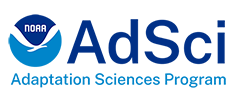The Adaptation Sciences (AdSci) Program
NOAA’s Adaptation Sciences (AdSci) research program (established in FY 2021) is designed to advance the knowledge, methods and frameworks needed to move society beyond incremental adaptation toward more widespread, connected, adaptive pathways, and resilience strategies with clear economic and societal co-benefits. Research focuses on the integration of acute and chronic stressors that occur over multiple timescales, which can lead to cascading impacts that threaten to overwhelm and undermine systems important to daily life and social and economic well-being.
The AdSci portfolio of research and engagement activities builds on the networks and insights generated by the ongoing Regional Integrated Sciences and Assessments (RISA) Program, and the previous CSI investments in the legacy programs: Coastal and Ocean Climate Applications (COCA), the International Research, Applications Project (IRAP), and the Sectoral Applications Program (SARP).
AdSci Program Elements
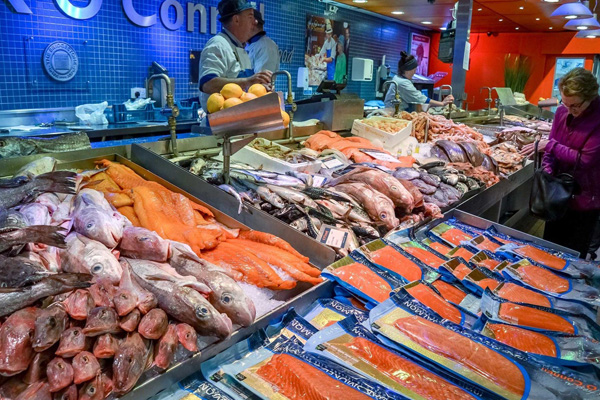
Climate and Fisheries Adaptation Program (CAFA)
The Climate and Fisheries Adaptation Program (CAFA) is a partnership between the Office of Oceanic and Atmospheric Research (NOAA Research) Climate Program Office, and the National Marine Fisheries Service (NOAA Fisheries) Office of Science and Technology that supports targeted research to promote adaptation and resilience of the nation’s valuable fisheries and fisheries-dependent communities in a changing climate. By bringing together NOAA scientists with many partners, CAFA addresses priority needs for information and tools identified in the NOAA Fisheries Climate Science Strategy, Regional Action Plans, and other sources.
Contact: Jennifer Dopkowski
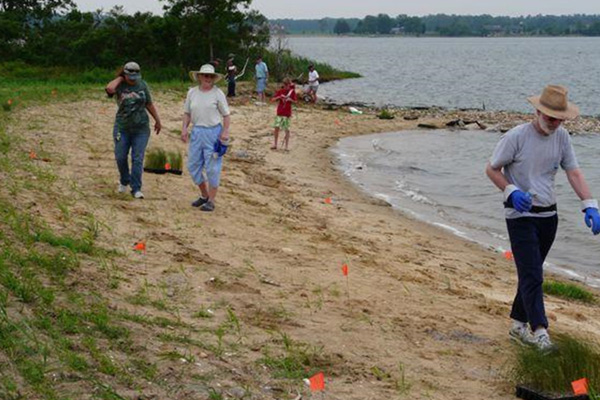

Coastal Resilience
The AdSci Coastal Resilience program element addresses the needs of decision-makers at various levels dealing with complex climate-related issues in coastal and marine environments. The program element is designed to support partnerships and engagement, in the development and transfer of climate-related research and information to advance the resilience of coastal communities and coastal/marine ecosystems. It also builds on the work from the earlier CPO/CSI-led Coastal and Ocean Climate Applications (COCA) Program.
Contact: Bhaskar Subramanian
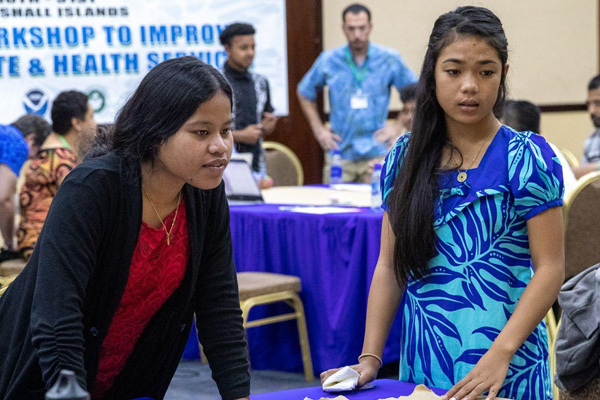

International Adaptation and Resilience
The AdSci International program element works with partners in the public and private sector in the U.S. and abroad to enhance the knowledge, engagement and capacity needed to foster adaptation and resilience in the face of a changing climate. Building on earlier CPO/CSI-led programs, including the International Research and Applications Project (IRAP), AdSci International supports interdisciplinary research, peer-to-peer learning, climate services development and resilience activities focused on the sectors and systems upon which communities depend (e.g., human health, disaster risk reduction, water resources, coastal and marine ecosystem management, food security, infrastructure). Through this approach, the program emphasizes the benefit of collaborative processes, creating new partnerships, and working within existing international and regional frameworks to support the integration of climate information in risk management, and the development of adaptation and resilience strategies.
Contact: Lisa Vaughan, Andrea Miralles-Barboza
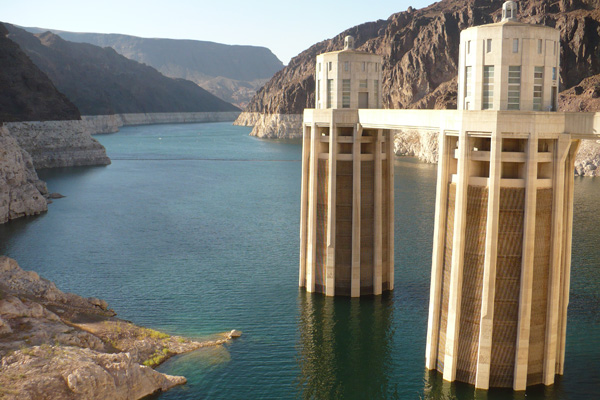

Water Resources
The Climate and Societal Interactions division launched the AdSci Water Resources program element in response to water managers’ increasing need for more information about climate variability and change. The program element builds on the work from the earlier CPO/CSI-led Sectoral Applications Research Program (SARP) by exploring practical lessons and leading practices focused on steps that can be taken in the water sector to mainstream climate science and build climate resilience, while expanding and fostering the exchange of knowledge across communities and other sectors.
Contact: Amanda Catron


